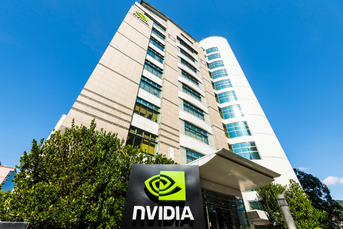Investment showdown: active managers versus dart-throwing monkeys
Professors offer an interesting take on the age-old question. Sorry, monkeys.
No matter how often this comparison comes up, it never ceases to be amusing.
“There is perhaps no question in money management as controversial as the question of whether active mutual fund managers can outperform monkeys throwing darts.”
Not to digress, but it’s the type of question that leads to so many other important questions. Like, do the mutual fund managers also have to throw darts at a newspaper to pick their stocks? This would require quite a unique skill set to compete in such a biathlon, no? And would this man vs. monkey showdown be staged under the natural conditions for dart throwers/stock pickers, i.e., a dingy bar with a belly full of fried food and beer? It’s hard to imagine the monkeys getting past the bouncers, let alone getting access to the darts.
Anyway, this time the ones invoking the oft-invoked hypothetical showdown are professors Jonathan B. Berk of Stanford and Jules Van Binsbergen of Wharton. And they come to a conclusion that may be as controversial in the money management industry as it is in the animal kingdom: The money managers are more skilled than monkeys!
THROWING DARTS
To reach that conclusion, they also sort of throw a dart at the traditional notion of measuring a fund manager’s skill by alpha, which is the first letter of the Greek alphabet and used in finance to refer to the amount by which a fund’s returns exceed a benchmark index. (At the risk of digressing again, recent events do make one wonder if maybe Greek is not the best language to use for our financial alphabet.)
Messrs. Berk and Van Binsbergen take up the subject of why the alpha produced by fund managers tends to decrease as the funds grow bigger. To many observers, this implies that the impressive alpha early on was probably a result of luck rather than skill.
(More: Pimco’s brand took a hit after Gross exited but still ranks among top fund managers)
The professors argue that’s not the case. Mutual fund performance is similar to the performance of stocks, Mr. Berk contends. As a company matures and grows, more investors become aware of it, and its share price better reflects its prospects. This explains the phenomenon of how valuations and returns of benchmark indexes for smaller companies are usually higher than larger companies. Of course, they’re also riskier.
In the case of mutual funds, impressive alpha attracts more investor money to a fund, and that makes it more difficult to produce alpha since taking larger positions in stocks is going to have a greater impact on share prices.
(The professors published research on this last year, but their recent summary of the work is available for a free download and is making waves in some wonky corners of the blogosphere.)
They use Peter Lynch’s track record managing Fidelity’s Magellan Fund as an example, since he is “widely regarded as the most skilled active manager of all time.” In his first five years running the fund, he earned a monthly 2% gross alpha (before fees) on assets of about $40 million. In his last five years, the gross alpha was just 20 basis points (or 0.2 percentage point) as assets grew to more than $10 billion.
WRONGHEADED
One takeaway is that Mr. Lynch’s alpha deteriorated sharply, but the professors believe that’s wrongheaded. Instead, they look at it this way: the value he added went from less than $1 million a month to more than $20 million a month.
By this yardstick, they estimate that the average actively managed fund adds about $3.2 million (in the year 2000 dollars) in value per year.
This may be welcome news, or at least fodder for marketing materials, for active managers confronted by a seemingly endless stream of stories about how most of them can’t beat their benchmark and how money is instead flowing into passive index-tracking funds. Not such great news for monkeys.
Learn more about reprints and licensing for this article.








